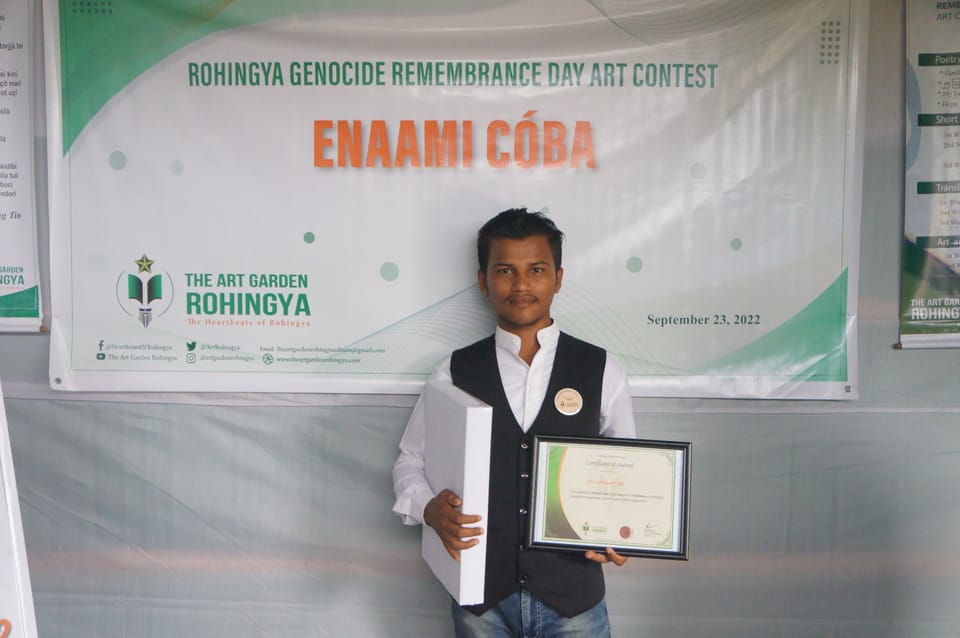A Hopeless Rohingya Student

My name is Monsur Ali, and I am a survivor of the Rohingya genocide. I was born in 2001 in Phur Wut Chaung (known as Poakhali in Rohingya) in the northern part of Maungdaw Township, near a Rakhine village. I grew up without full rights and freedom, yet I held dreams for the future. In 2017, I was a Grade-9 student, aspiring to become a doctor.
On August 25, 2017, the Myanmar military launched operations against the Rohingya people in various villages across the Arakan State. This attack was different from previous conflicts; they showed no regard for innocence, age, or vulnerability. Entire villages were set ablaze, and thousands of people were killed indiscriminately. The military’s actions left around 288 villages in ashes, and countless Rohingya people, including my family and me, were left homeless.
As the violence approached my village, we joined many others in fleeing toward Bangladesh. Our journey was marked by hardship—walking for days without food and facing life-threatening situations at every turn. One of the most harrowing moments occurred when we reached the Furma River. Lacking sufficient boats, many desperate people attempted to swim across, and tragically, several drowned, including three members of my family. With heavy hearts, we continued on, hiding in forests and navigating treacherous terrain until we reached the Naf River, where the dangers escalated further. Yet, by some miracle, we managed to cross into Bangladesh.
Now, I live in a refugee camp in Cox’s Bazar, Bangladesh, where I continue to grapple with the loss of my home, my people, and my education. Before the violence, I dreamed of becoming a doctor—an aspiration fueled by the lack of medical professionals in my community. Unfortunately, my education was interrupted in 2017, and despite resuming my studies in 2019, I’ve been unable to pursue higher education as a refugee.
In the refugee camp, I passed my matriculation exams with high marks, thanks to the efforts of dedicated Rohingya teachers at the Community Rebuilding Center (CRC) School. Despite these accomplishments, my path to achieving my dream of becoming a doctor remains blocked. This has left me feeling lost, though the hope of continuing my education still burns inside me.
To cope with my frustrations, I began writing poetry and practicing photography in 2020. These creative outlets became my way of telling the world about the Rohingya experience. My poems have been published on several online platforms, and I’ve been recognized for my work, including winning second place in the "Rohingya Genocide Remembrance Day Art Contest" held by The Art Garden Rohingya in 2022. I also contributed to an anthology titled Voices of Survivors, available on Amazon, and many of my photographs have been exhibited internationally.
Despite these achievements, they are not my ultimate goals. My dream remains the same—to complete a bachelor's degree in medical science. It’s the only path that will bring peace to my soul and allow me to contribute to my community in a meaningful way.
By
Monsur Ali – Rohingya Genocide Survivor and Aspiring Doctor
